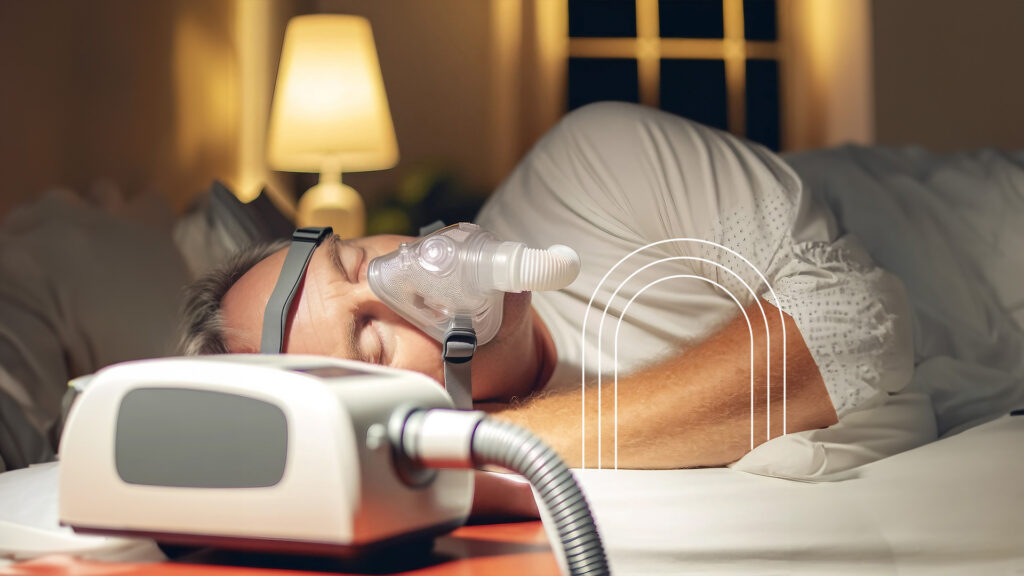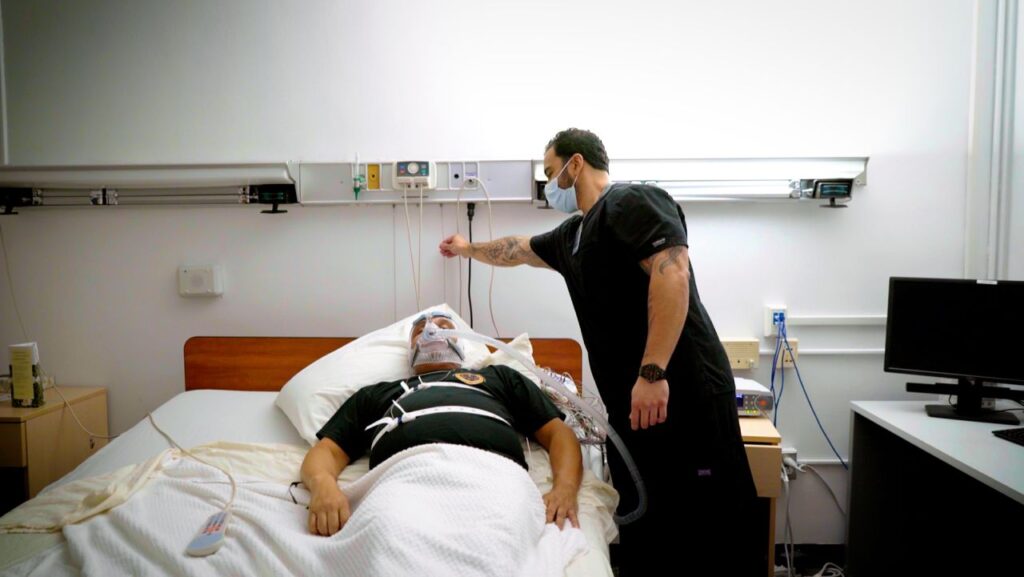Sleep apnea is a common yet often misunderstood condition that affects millions of individuals around the globe, including many in Australia. With an increasing awareness of the condition’s impacts on health and well-being, understanding the cost implications of sleep apnea testing has become essential for those who might be affected.
What is Sleep Apnea?
Sleep apnea is characterized by intermittent pauses in breathing or shallow breaths during sleep. These episodes can last from a few seconds to minutes and occur multiple times throughout the night, disrupting normal sleep patterns.
The sleep apnea test cost Australia can vary significantly based on the type of test, location, and other factors. Understanding these cost components is essential for budgeting and planning purposes.
The disruption of sleep often leads to excessive daytime sleepiness, fatigue, and can significantly impact overall quality of life. Understanding the nuances of sleep apnea is vital for those who might experience its symptoms or risks. The condition can also affect cognitive function, leading to difficulties in concentration and memory, which can hinder performance at work or school. Furthermore, the chronic fatigue associated with sleep apnea can strain personal relationships, as individuals may be irritable or less engaged due to their lack of restorative sleep.
Symptoms and Risks of Sleep Apnea
Common symptoms of sleep apnea include loud snoring, gasping for air during sleep, and excessive daytime fatigue. Many people may not be aware that they have the condition, making it even more critical to recognize the signs. Other symptoms can include dry mouth upon waking, morning headaches, and difficulty staying asleep, which can all contribute to a cycle of poor sleep quality.
The risks associated with untreated sleep apnea can be grave. They include an increased chance of high blood pressure, heart disease, diabetes, and strokes. Additionally, sleep apnea can lead to mental health issues such as anxiety and depression, further compounding the problem. The potential for accidents also rises, as drowsiness can impair reaction times and decision-making abilities, increasing the likelihood of vehicle crashes or workplace injuries.

Types of Sleep Apnea
There are primarily three types of sleep apnea: obstructive sleep apnea (OSA), central sleep apnea (CSA), and complex sleep apnea syndrome. Obstructive sleep apnea is the most common form and occurs when throat muscles relax excessively during sleep.
Central sleep apnea, on the other hand, is less common and occurs when the brain fails to send proper signals to the muscles that control breathing. Complex sleep apnea syndrome is a combination of both OSA and CSA. Each type has its own set of causes and treatment options, which can range from lifestyle changes and the use of continuous positive airway pressure (CPAP) machines to surgical interventions in more severe cases. Understanding the specific type of sleep apnea one may have is crucial for effective management and treatment, as it can lead to improved health outcomes and a better quality of life.
The Importance of Sleep Apnea Testing
Testing for sleep apnea is vital for accurate diagnosis and effective treatment. The process of getting tested can sometimes seem daunting, but it is a crucial step in managing this serious condition.
With advances in testing methods and technologies, individuals can find it easier than ever to determine whether they are suffering from sleep apnea. An accurate diagnosis is crucial for preventing further health complications.
Benefits of Early Detection
Early detection of sleep apnea can lead to a range of benefits. By identifying the condition sooner rather than later, individuals can begin appropriate treatment options, which may include lifestyle changes, the use of a CPAP machine, or other interventions.
Furthermore, treating sleep apnea can improve energy levels, mood, and cognitive function, allowing individuals to lead happier, more productive lives. Studies have shown that individuals who receive timely treatment for sleep apnea report significant improvements in their overall quality of life, including better relationships and enhanced performance in both personal and professional settings. This improvement can often be attributed to better sleep quality, which is crucial for emotional regulation and mental clarity.
Potential Consequences of Untreated Sleep Apnea
If left untreated, sleep apnea can result in serious and life-altering health issues. Chronic daytime fatigue can impair job performance and increase the risk of accidents. Additionally, untreated sleep apnea can exacerbate existing health conditions or lead to new ones. Find more about chronic at https://www.health.harvard.edu/diseases-and-conditions/what-is-chronic-inflammation
It’s essential to be proactive about one’s health, particularly when it comes to conditions like sleep apnea that can have far-reaching implications. The risk of developing cardiovascular problems, such as hypertension and heart disease, is significantly heightened in individuals with untreated sleep apnea. Moreover, the condition is linked to metabolic disorders, including diabetes, which can complicate treatment and management of these diseases. Recognizing the signs and symptoms of sleep apnea early on can not only prevent these complications but also promote a healthier lifestyle overall, encouraging individuals to seek regular medical check-ups and maintain a balanced diet and exercise regimen.
Overview of Sleep Apnea Tests
There are different types of tests available for diagnosing sleep apnea. The choice between them often depends on individual circumstances and preferences. Understanding these options can help those considering testing make more informed decisions.
Home Sleep Tests
Home sleep tests are a convenient option for many individuals, allowing them to take the test in the comfort of their own home. These tests typically involve the use of portable devices that monitor breathing patterns, heart rate, and blood oxygen levels during sleep.
The convenience of home sleep tests can be a significant factor for individuals who may feel uncomfortable in a clinical setting. They may also enhance compliance, leading to more accurate results. Additionally, home sleep tests are often more cost-effective than in-lab tests, making them an appealing choice for those concerned about healthcare expenses. However, it is essential to note that these tests may not capture all the nuances of sleep disorders, particularly in cases where other underlying conditions may be present.
In-Lab Sleep Tests
In-lab sleep tests, also known as polysomnography, are more comprehensive than home sleep tests. Conducted in a sleep center, these tests monitor various bodily functions during sleep, including brain activity, eye movement, and muscle activity.
While in-lab tests offer a more detailed analysis, they can be less convenient and may require an overnight stay in a medical facility. The choice between testing methods will depend on various factors, including symptoms and physician recommendations. Moreover, in-lab tests can provide valuable insights into the severity of sleep apnea, allowing healthcare providers to tailor treatment plans more effectively. The presence of trained sleep technicians during the test can also ensure that any anomalies are promptly addressed, providing a layer of safety and reassurance for patients.
Cost Factors of Sleep Apnea Tests in Australia
In Australia, health insurance policies may cover some aspects of sleep apnea testing, but out-of-pocket costs can still be substantial.
The Role of Health Insurance
Health insurance plays a significant role in determining the overall cost of sleep apnea testing. Many policies provide coverage for both in-lab and home sleep tests, but the extent of that coverage can sometimes vary widely.
Individuals are encouraged to review their health insurance policies carefully to understand what services are included and if any pre-approval is required. Consulting with health professionals can also give clarity on expected costs based on specific insurance plans.
Moreover, some health funds may have preferred providers for sleep studies, which can influence both the quality of care and the associated costs. Choosing a provider within the network can sometimes lead to reduced fees or additional benefits. It’s also worth noting that certain policies may offer incentives for preventive care, which could include sleep apnea assessments, thereby potentially lowering the financial burden for patients.
Out-of-Pocket Expenses
For those without health insurance or with limited coverage, out-of-pocket expenses for sleep apnea testing can add up quickly. Home sleep tests tend to be less expensive than in-lab tests, but both can still incur costs that individuals should be prepared for.
It is essential to inquire about the total costs beforehand, including any follow-up consultations or equipment that may be required for ongoing treatment. This proactive approach helps avoid unexpected financial strain. To learn more about strain click here.
Additionally, patients should be aware that the costs associated with sleep apnea testing may not end with the initial assessment. Continuous Positive Airway Pressure (CPAP) therapy, which is often prescribed following a diagnosis, can introduce further expenses, including the cost of the machine, masks, and replacement parts. Many patients find it beneficial to explore rental options or payment plans for these devices, which can help manage costs over time while ensuring they receive the necessary treatment for their condition.
Financial Assistance and Support for Sleep Apnea Testing
Recognizing the potential financial burden of sleep apnea testing, several resources are available to assist individuals in accessing the necessary testing and treatment.
Both government health programs and charitable organizations can provide support, making it more manageable for those in need to obtain testing.
Government Health Programs
In Australia, various government health programs exist to assist individuals with health care costs, including sleep apnea testing. Programs like Medicare may offer financial assistance for eligible patients, covering a portion of testing or treatment expenses.
It is beneficial for individuals to familiarize themselves with these programs, as they can significantly reduce the financial burden associated with sleep apnea testing. Additionally, some states may have specific initiatives aimed at increasing access to sleep health services, which can include subsidized testing options or partnerships with local clinics to provide affordable care.

Non-Profit Organizations and Charities
Numerous non-profit organizations and charities focus on sleep apnea awareness and treatment. These organizations may offer financial assistance, educational resources, and support networks for individuals diagnosed with sleep apnea.
Connecting with these organizations can provide invaluable help in navigating both the emotional and financial challenges associated with sleep apnea. They often serve as resources for individuals seeking access to testing and treatment options. Furthermore, many of these organizations host community events and workshops that not only raise awareness but also provide opportunities for individuals to learn about the latest advancements in treatment and management strategies.
In addition to financial aid, some charities may offer equipment loan programs, allowing patients to borrow CPAP machines or other necessary devices at no cost. This can be particularly beneficial for those who are unsure about committing to a purchase before fully understanding their treatment needs. Ultimately, understanding the cost of sleep apnea testing in Australia is an essential step for those impacted by the condition. With the right tools and resources, individuals can seek the help they need while managing the financial implications effectively.
Read more about bulk bill study at: Bulk Bill Sleep Study
Comments are closed



